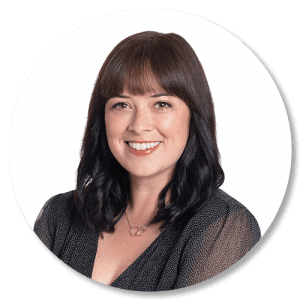An interview with Donna Wong during Asian Heritage Month through her tenure as the CFO of Field Trip Health Ltd., a psychedelic drug development and therapy company based in Toronto
Donna Wong enjoys a challenge. Her latest as CFO of Field Trip, adds to a long list of financial roles she has held throughout her career. The consultant, advisor and CFO took ViXS Systems Inc. public on the TSX in 2013, raising $57.4 million in equity for the tech company. As a Fractional CFO, Wong advises a portfolio of high-growth tech and healthcare start-ups on how to scale by implementing the appropriate capital, operating and IT infrastructure.
Sindhu Suppiah spoke with Wong during Asian History Month about managing a diverse portfolio of clients, how finance acts as a partner in high-growth companies and what it’s like working in the emerging psychedelics industry.
Suppiah: Talk to us about your Fractional CFO role at Field Trip and other high-growth companies that you’ve worked with.
Wong: Field Trip is a publicly traded company on the Canadian Securities Exchange focused on developing and delivering psychedelic therapies to treat mental health issues such as depression. My role there is to set up the appropriate infrastructure for the company to grow, by helping them with their financing needs, implementing a corporate governance and internal controls framework and building and mentoring a strong team.
I like high-growth companies because they are very fast paced. Things are always changing. You don’t have a set routine in terms of what you are doing day-to-day. I like to think of working in a high-growth environment in dog years — one year working for a high-growth company is equivalent to seven dog years in terms of the experience you get. You are exposed to all aspects of the business — HR, IT and Operations and it requires you to be a jack-of-all-trades.
Suppiah: You are not only the CFO — you wear a couple of different hats even within the finance function, both strategic and tactical in nature.
Wong: You are right. As CFO, I have the ability to guide the company where it needs to go from a strategic point of view, and to execute on those strategic objectives. There are not a lot of management layers in high-growth companies, so decisions can be made very quickly. You can play a really active role in terms of setting the tone at the top and influencing the culture. You can build processes and procedures from the ground up and you can build them right.
Suppiah: How can finance act as a strategic partner to the Founder or CEO of a high growth company?
Wong: As a finance individual, establish your value-add early on by getting involved in the operations and providing strategic analyses and advice. Do that in a company that’s growing rapidly and that will continue to grow. But first you have to get your house in order by putting the right building blocks in place — financial and management reporting, forecasting, budgeting and internal controls.
Suppiah: Do you have a formula that you apply to these businesses when you walk in and evaluate what’s going on?
Wong: Before I start at any company, I always make sure I implement a purchase order process. I know it sounds basic, but if you instill that discipline early on when the company is in the growth stages, that sets you up for future success. Having a purchase order process in place sets the tone that you are going to be fiscally responsible. That doesn’t mean inundating the company with paperwork and bureaucracy — it instills a sense of discipline and makes people accountable for what they are spending. With high-growth companies, I look at their technology and patent portfolio, and whether or not their IP meets a specific niche. The other criteria I look at is the track record of the management team and the business model.
Suppiah: You took ViXS Systems public. What was that experience like?
Wong: It was really crazy. We went public via a reverse takeover (RTO), which back in 2013 was not that common. Now everybody is going public via an RTO. We made the decision in April to go public. We prepared the investor deck, went on the road show in May, closed the private placement in June and were public in July. One thing people underestimate when they go public is the infrastructure needed and the ongoing costs of being a public company from an external reporting perspective — the corporate governance and internal controls framework required.
Suppiah: What was your strategy?
Wong: For every high-growth company that I have joined, my mentality has always been that eventually there will be an exit. From day one at ViXS, we were of the view that we had to look, smell, and feel like a big company in order to prepare for that eventual exit. That PO process from the very beginning really set the tone for us. The importance of fiscal responsibility allowed me to see what was going on in the company because every single transaction flowed through finance and we had to approve the POs. A lot of people think, “Oh, if we put the infrastructure in place, it’s going to cost a lot of money. I’d rather have the funds and then do it.” But that’s not true. You can do this without incurring a lot of costs. You can leverage so many cost-effective and free resources online from lawyers and CPA firms.
Being Asian, that was something that took me a while to figure out — to advocate for yourself, to speak up, to get those jobs that you want, to get those opportunities that you want, because your natural instinct based on your upbringing is not to do that.
Suppiah: Field Trip is at the forefront of developing and delivering psychedelic therapies to treat mental health issues such as depression. What is the future of the psychedelic space and what do you find compelling about the company and industry?
Wong: What I find compelling about Field Trip is that we focus on all aspects of the psychedelics value chain. We have 3 distinct but complementary business segments: (i) Field Trip Discovery, which is focused on the development of the next generation of psychedelic molecules and conducting advanced research on plant-based psychedelics; (ii) Field Trip Health clinics in North America and Europe, which provide psychedelics therapies; and (iii) Field Trip Digital which develops digital and technological tools to support psychedelic experiences and consciousness expansion.
The COVID-19 pandemic has resulted in an estimated three-fold increase in the incidence of depression in the U.S. I don’t have the statistics for Canada, but I imagine that we have experienced a similar increase. We expect an increase in long-term demand for our depression related psychedelic therapies as case counts decrease.
Suppiah: What are Field Trip’s current plans for scaling and growing?
Wong: We recently raised $115 million through 2 bought deals in January and March 2021. We intend to use the funds to (i) further our development of FT-104, our next generation psychedelics molecule, (ii) continue our clinic rollout in North America and Europe and (iii) continue development of our digital tools: Trip, a mobile consciousness expansion app and Portal, our in-house platform used by patients at our clinics.
Suppiah: You’re the Fractional CFO at Field Trip. At what point would a company need to hire someone full-time?
Wong: It depends on the size and the complexity of your business. Look at the TSXV — there are quite a number of Fractional CFOs in those roles.
Suppiah: What took you into Fractional CFO work? How was that transition for you?
Wong: It was a personal decision for me to spend more time with my family. I reached a point in my career where I could afford to take the risk. To juggle a portfolio of clients, you have to be able to prioritize and multitask and be very disciplined in terms of who you focus on and when. As CFO of a public company, there are strict reporting deadlines that can’t be missed. When deadlines come up, prioritize those deliverables. I really like the culture of a high-growth company. I like the fact I’m always busy and providing strategic value to the company.
Suppiah: It’s Asian Heritage Month. How does your upbringing and your heritage contribute to you being the successful finance leader that you are today?
Wong: You know what? I probably have the typical Asian immigrant story. My parents immigrated to Canada in 1967 from Hong Kong. So I’m a first-generation immigrant. There was a big focus on academics and hard work. My parents were very humble. If you work really hard, the results of your work will speak for itself. I think that’s true to a certain extent but I also think that helped perpetuate the stereotype of the typical Asian worker as the model minority. I think one thing my upbringing taught me is self-awareness. The other thing is that you can’t let your work speak for yourself. You have to be your own advocate. Being Asian, that was something that took me a while to figure out — to advocate for yourself, to speak up, to get those jobs that you want, to get those opportunities that you want, because your natural instinct based on your upbringing is not to do that.
Donna Wong is a consultant, advisor and financial growth expert with over 20 years of experience within private start-ups and public multinational organizations, primarily in the technology sector.
Whether your company requires the continuous support of a fractional CFO, the stability of an interim CFO during times of transition, or assistance in placing a permanent solution, Clarity is your ultimate partner. Unlock your company’s potential and take the next step in securing the right financial leadership for your company needs, when you need it.
Connect with our team today to learn more!






